King Hamlin: An interview with playwright Gloria Williams ahead of opening night at Park Theatre
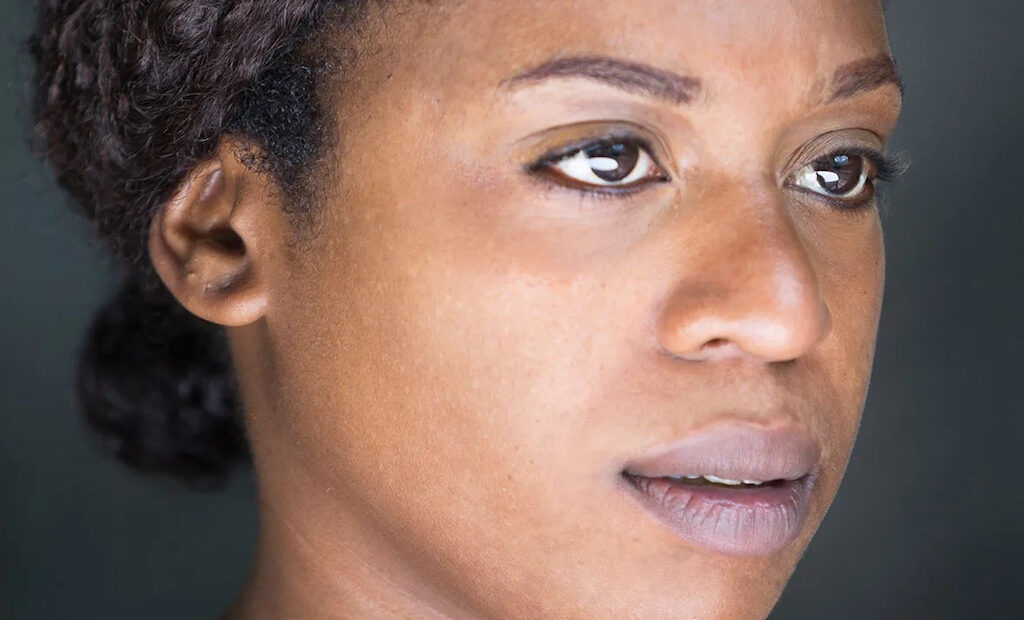
From the writer of Bullet Hole, the critically acclaimed play that tackled genital mutilation, comes another hard-hitting story. This time Gloria Williams explores the traps of crime and gang life, and how poverty can affect the youth of London. King Hamlin follows Hamlin and his descent into crime after getting tangled up in a drug-trafficking scheme with Nic and Quinn. The performance captures shades of youth crime rarely discussed, the desperate circumstances that lead to becoming involved, the aftereffects and the perspective of the youths’ mothers.
As an actor herself, Williams attaches a sort of authenticity to King Hamlin with her passion for telling stories untold. She peers deeper into the crime and unravels the different threads that caused the spiral – for the character of Hamlin, it’s his absent father, the desire to finish school and build him and his mother a better future. King Hamlin, at its core, is about relationships, the friendship between the boys, and Hamlin’s love for his mother, Mama H. The Upcoming caught up with Williams to talk about her inspirations for the characters and the story, her research into knife crime in England, and the difference between writing and acting for theatre.
For the young protagonists of King Hamlin – Hamlin, Quinn and Nic – did you have any real-life muses that inspired their personalities and their dynamic?
I’ve known a few young men in my life like Hamlin. One who has strong family values, is close to his mother, is very legit as far as education, and, in some ways, has an internal leadership ability that he can’t channel because his morals conflict with his environment… things such as drug trafficking, gangs and the ever-growing validation from social media. Nic is quite like the antagonist in the story. He is a young man with a very troubled upbringing, he tends to find fascination in action heroes, war and being a gang leader – almost like a childlike fascination with the danger that surrounds him. I see a lot of young boys like that, who see this as a game but are filling an emotional void. Quinn has an innocent aura about him and is very young, mentally. He is clearly in need of a father figure, which he sees in Nic. But he is missing a lot of guidance.
What plays or other works – be they books, films, or even documentaries – did you look to for inspiration when writing King Hamlin?
I remember always being fascinated with the way The Lion King combined Shakespeare’s Hamlet and the David and Goliath story. There is something about having a traditional protagonist with a fatal flaw whilst positioning them in a modern-day situation that has always attracted me.
Did you also look into knife crime cases and statistics to help you understand and authentically tackle the subject matter?
Yes; I read the data and I found it interesting that there were other parts of the UK that had knife crime as an issue and used early intervention for young children as part of their solution. It was reported that the social indicators amongst young working-class males were relative poverty, domestic violence, masculinity and lack of education. That is why I tried to tackle Hamlin wanting a job and to study, and him missing his deceased father, whilst Nic comes from a rough upbringing.
How was it humanising the character of Hamlin – trying to provide a real empathetic insight into why he did the things he did, without diminishing or excusing the crimes?
I wanted to highlight the relationship he has with his loving mother, to show that, even though he is a son, he was faced with internal and external pressures to protect her and provide something for the household. It’s almost as if he has been anointed to step up as the man of the house. But it was his love for his mother and his frustration of seeing her struggle that was truly at his core, which drove him to make those choices.
Why did you feel it was so important to showcase that relationship and touch on the mother’s perspective?
When it comes to youth violence, the voice of the matriarch is often not heard: we hear these stories of men being killed but we do not hear too much about the social anxiety that surrounds them and how fearful they are when their sons start maturing. I wanted to show that trauma still exists within the community, especially the mothers.
Talking about your writing process with dialogue, you mentioned in a previous interview that you say lines out loud in a way – does that come into play when thinking about casting the characters? How different are the actors from the way you initially envisioned the performance?
Interestingly, the actors who audition often bring something different to their performance. One of the actors – Andrew Evans who plays Nic – was very funny. The director, Lara Genovese, said, “You have to check this audition”. He brings something witty; she was right. I never thought of Nic as funny but that’s why I like auditions as the actors, without realising, become collaborators.
Speaking of casting and actors, you’re also an actor yourself. What spurred your transition from acting to writing theatre?
To be honest, I started writing at the start of my acting career, so I pursued them simultaneously. Life was quite different when I left drama school in the sense that there was not as much work for Black actors as there is today. My mother was the one that told me to join the Royal Court, find my voice, and keep building on my craft.
Do your experiences as an actor shape your writing process, or vice versa?
Yes, because I am attracted to writing stories that I would like to either see performed or see myself performing. I like telling stories that I know I would want to be part of, if it was handed to me as an actor. I think the love of a protagonist that wants to win an objective is intrinsic in all of us, so I like to tell stories that put a person in the most challenging moment in their life and watch them win.
Which side of theatre appeals to you the most – acting or writing?
I would say there is a lot of freedom and control in writing. Acting is very much about what roles you can get and what auditions your agent can get you; writing frees you from all of that because nobody can control what is in your mind. The self-discipline it takes to craft a script is all a self-governing process that makes me feel part of the industry, even when I am not working as an actor.
You’ve said that the world is seeing there’s money to be made on female-led and POC-made media – do you think there’s a necessity to question how genuine these decisions are and the commodification of representation?
Absolutely. I definitely think there is a bit of consumerism involved, considering women love to shop. If you empower them, they will always put that money back into the economy in some way. I also think it’s hard to say what the gender side truly means because it’s decided by an overall hierarchy.
Mae Trumata
King Hamlin is at the Park Theatre from 19th October until 12th of November. For further information or to book visit the theatre’s website here.
Watch the King Hamlin team discuss the production here:



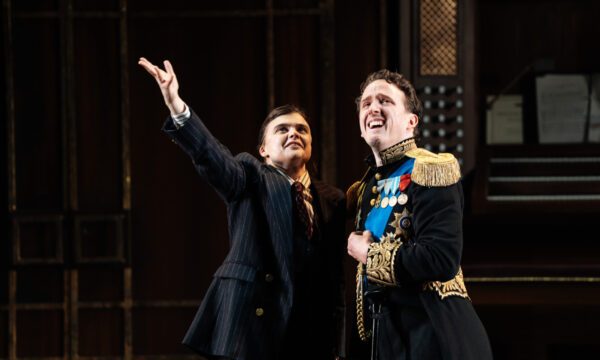

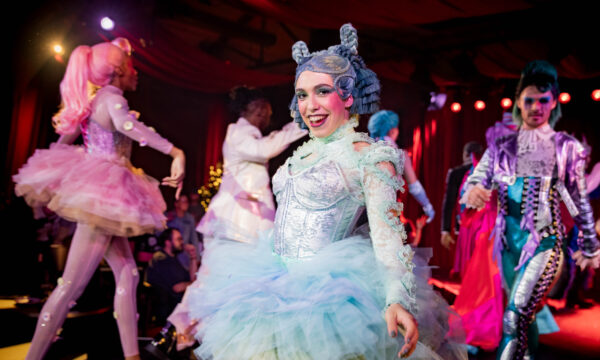
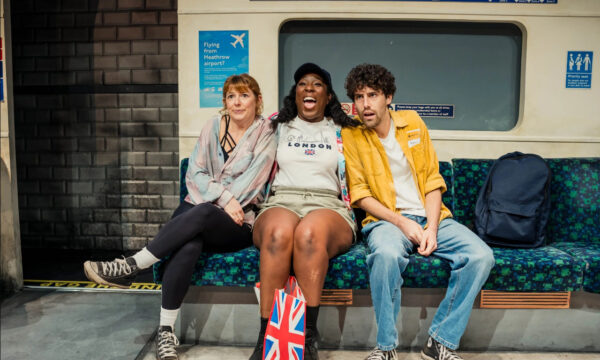
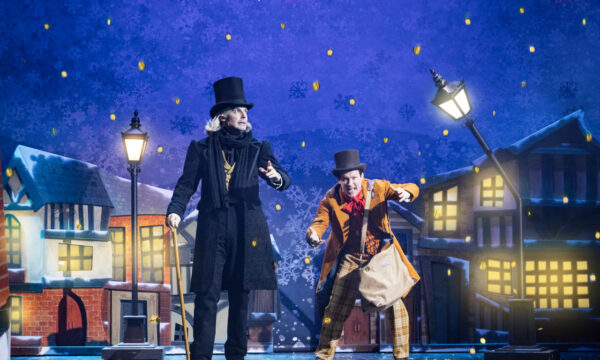
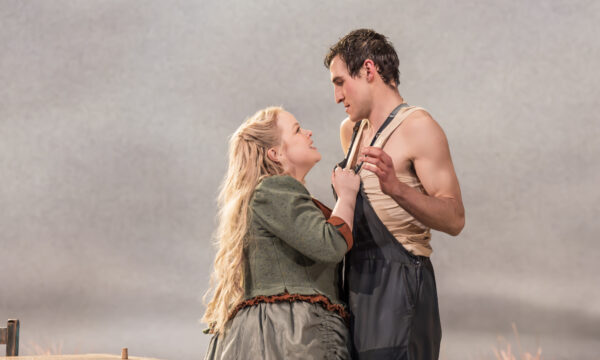

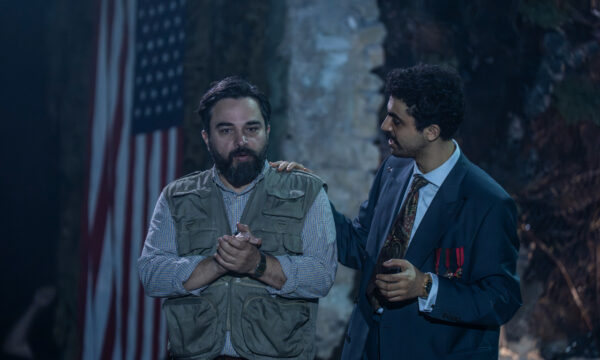
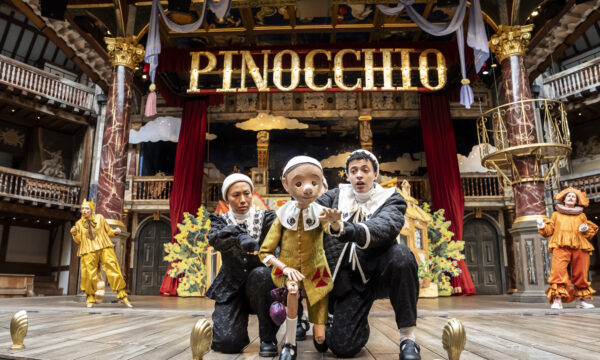
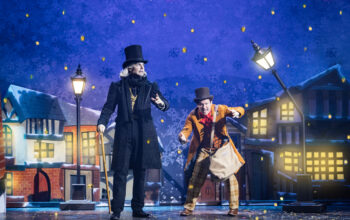





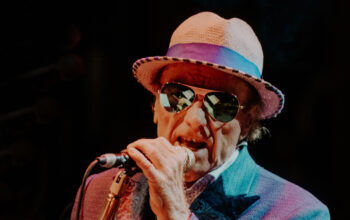
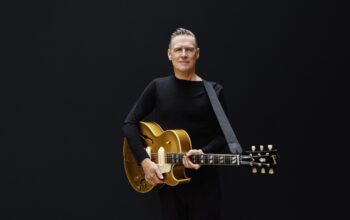
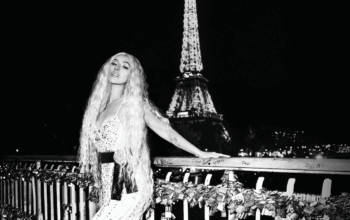





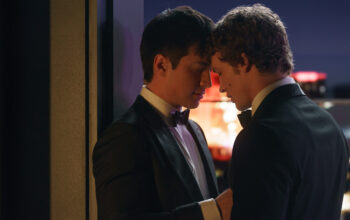
Facebook
Twitter
Instagram
YouTube
RSS